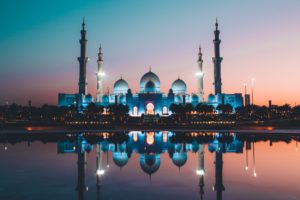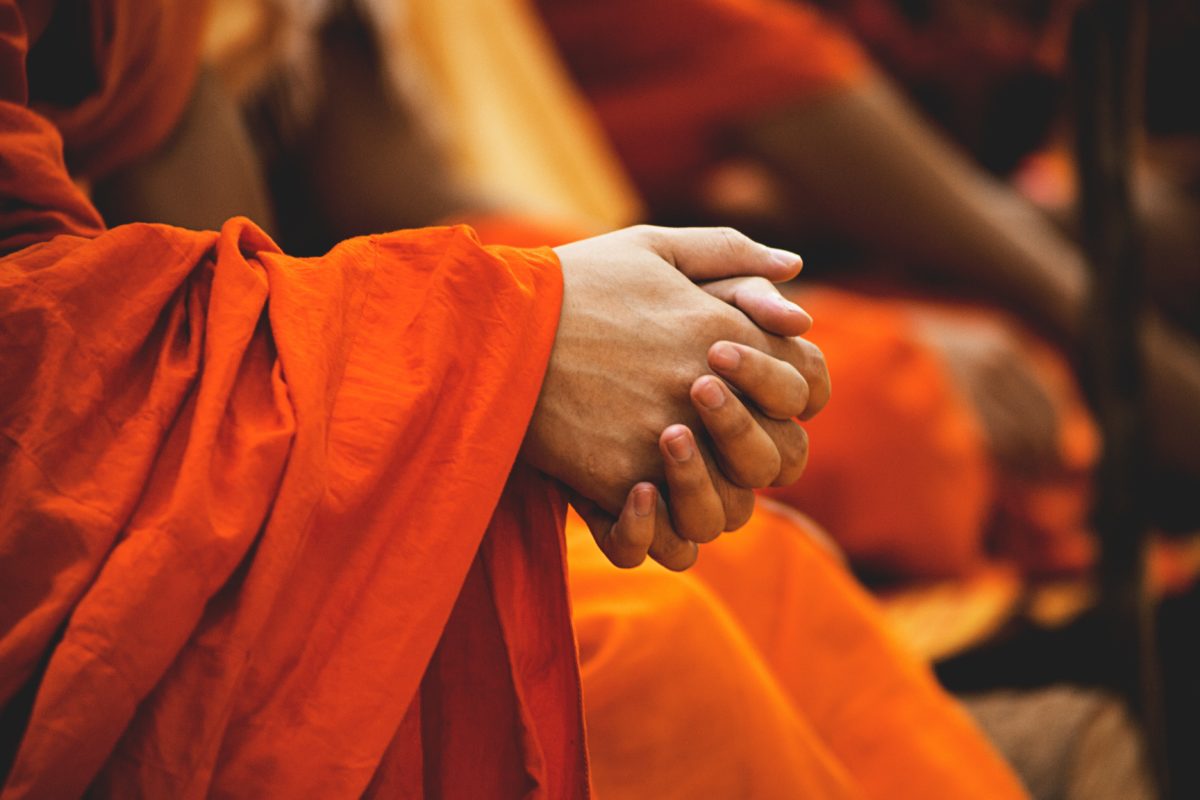Religion is one of those words that immediately creates a reaction. For some, it evokes comfort, meaning, a sense of home. For others, it brings tension, resistance, even pain. And for many more, it stirs up a quiet mix of both — memories, questions, longing, and perhaps a sense of something missing or never quite understood. Whatever your relationship to religion may be, one thing remains true: it has always been part of the human story. From the earliest whispers around fires in the night to the towering cathedrals and silent temples of today, religion has followed us — or perhaps led us — through time.
But why? Why does something so invisible hold so much power over how we live, what we believe, how we treat one another, and how we see ourselves in the universe?
To explore religion is not just to study theology or rituals. It is to ask the biggest questions that humans have ever dared to ask: Why are we here? What happens after this? Is there something — someone — beyond what we can see? And maybe even deeper than those: Am I alone? Am I loved? Does my life mean something?
Religion, in its many forms, has tried to answer these questions. Not always perfectly. Not always kindly. But it has offered structure where there was chaos. Hope where there was fear. Direction where there was wandering. It has given billions of people across time a framework to live by — a compass, a community, a sense of the sacred. Whether through ancient myth or modern scripture, chanting or silence, stained glass or incense smoke, religion speaks to something in us that is both very small and very vast at the same time.
And yet, the world has changed. Science has explained much of what was once a mystery. Technology has connected us in ways that were once the domain of gods. More and more people today live without religion — and they live full, moral, thoughtful lives. They search for truth in other places: in nature, in love, in reason, in art, in themselves. And that, too, is valid. Because religion is not the only path to meaning. But it remains one of the oldest, and for many, one of the deepest.
The fact that people can live both with and without religion — and still feel wonder, gratitude, and love — is not a contradiction. It’s a reminder that humans are seekers by nature. We search for something to hold onto. Something that helps us make sense of the pain, the beauty, the chaos, the stillness. Something that reminds us we’re part of something greater. Religion, in many ways, is a language for that longing.
Of course, religion has its shadows. History is full of wars, divisions, control, and suffering justified in its name. No one can deny that. And yet, the failure of institutions does not erase the purity of the original questions. At its best, religion is not about control. It’s about connection. To the divine. To each other. To ourselves. To something eternal, even if we don’t fully understand what it is.
For many, religion is tradition — something passed down through generations, woven into family and culture. For others, it is a personal choice — a turning point, a calling, an awakening. And for some, it is something they left behind — outgrown, or walked away from. But even then, it often leaves a shape behind. A shadow of the questions, if not the answers. You can walk away from a religion, but the curiosity that led you there — that often stays.
It’s easy to reduce religion to rules or dogma. But beneath that, there is something more human. A desire to belong. A desire to be forgiven. A desire to be seen, even by something unseen. Religion offers stories — and stories are how we’ve always understood ourselves. Creation myths, tales of sacrifice, redemption, miracles. These stories give texture to our fears and our hopes. They give names to things we feel but can’t explain. And whether you believe every word or take it as metaphor, the impact is undeniable. It shapes how people live. How they treat others. How they see suffering. How they imagine what comes next.
So why does religion still matter? Because even in a world full of answers, we still have questions that science can’t fully resolve. We still mourn. We still fall to our knees in awe. We still whisper to the sky when we feel alone. Religion provides not just belief, but ritual — a way to move through life’s passages: birth, love, death, loss, joy. It gives rhythm to chaos. Sacredness to the ordinary.
And maybe, even more than that, religion reminds us that we are not the center of everything — but we are still sacred. That we are small, yet worthy of attention. That life, even in its messiness, can be holy.
Whether you believe in God, in many gods, in none at all, the impact of religion on the human journey cannot be denied. It’s etched into our art, our architecture, our laws, our languages. It’s in the holidays we celebrate, the ways we mourn, the hopes we hold. Even those who reject religion entirely often do so because they expected something from it. Something real. Something good. And that says something too.
Religion is not about having all the answers. It’s about daring to ask the biggest ones. It’s about reaching for the divine, even when it feels far away. It’s about community, even when we feel isolated. It’s about remembering that life is not just what we can measure, but also what we can feel, and hope, and love.
In this space, we will explore what religion means — and what it has meant — to humanity. Not to preach. Not to convert. But to understand. To listen to the echoes of those who came before us, who looked up at the same stars and asked the same questions. To see how, across time and cultures, religion has tried to bring light into the dark, and meaning into the unknown.
And maybe, just maybe, it still can.
Religion is a belief of faith in a higher being, spirit, or any system of ideas that a group of people believe in. To have faith in a belief is to have the belief without proof that it is true. Faith can bring people together because they all believe in the same thing. Some of the things religions talk about are what happens after death, why humans exist, how humans came to exist (creation), and what is good to do and not to do (morality). Some people are very religious. Many people believe in one all-powerful god; some people believe in more than one god; some people are atheists, who do not believe in a god; and some people are agnostics, who are not sure if there is a god. People who believe in one or more gods, but do not belong to a religion, are called deists.
Religious beliefs
God
In many religions, one of the main beliefs is that there is a “deity” (or god) who is a great creator spirit. In many religions, there is just one deity that the people believe in. In other religions, there are many deities who each have different roles in the universe. In many religions, there are other types of spirits. These may include other such things which can be both good and bad.
Giving honour to God, the gods or the spirits is an important part of most religions. While this may often be done privately, it is also often done with gatherings of people and rituals. These rituals are often based on old traditions, and may have been done in almost the same way for hundreds, or even thousands of years.

Human spirit
Another main belief is that humans have a “soul” or spirit which lives on after their body has died. The person’s spirit is on a journey through life that continues after death. Most religions believe that what a person does during their lifetime will affect what happens to their spirit in the afterlife. Many religions teach that a good person’s spirit can reach a special place of peace and happiness such as Heaven or Nirvana, and that a bad person’s spirit can travel to a place of pain and suffering such as Hell. Still other religions believe in reincarnation – that instead of going either to Heaven or Hell, spirits of the dead return to earth in a new body.

